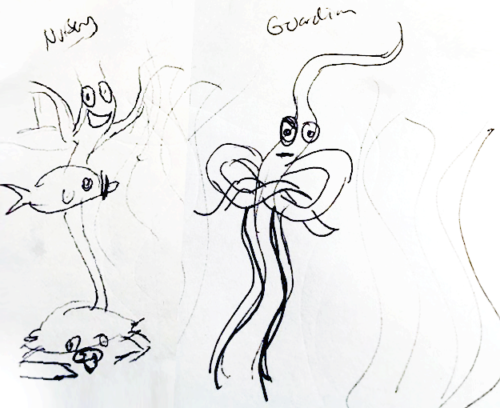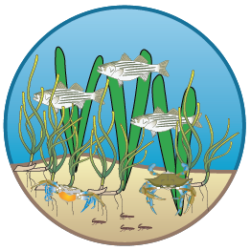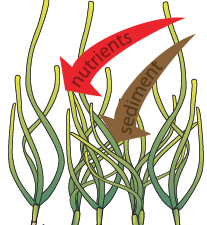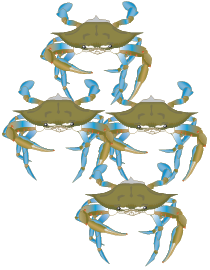The Chesapeake Sentinels
Bill Dennison · | Science Communication | Learning Science |A new paper on Chesapeake Bay Submerged Aquatic Vegetation (SAV) was published last week by colleagues from the Virginia Institute of the Marine Science (VIMS) and University of Maryland Center for Environmental Science, led by Jon Lefcheck (VIMS). This paper, entitled "Multiple stressors threaten the imperiled coastal foundation species eelgrass (Zostera marina) in Chesapeake Bay, USA" was published in Global Change Biology. The paper highlights the reduction of Bay Area occupied by eelgrass due to the combination of heat stress and increasingly turbid water. This paper is the first of a series of papers being developed as part of the Submerged Aquatic Vegetation synthesis (SAV SYN) effort.
As part of our SAV SYN workshops, we have developed the concept of SAV acting as sentinels for Chesapeake Bay. The word 'sentinel' has two meanings, both apropos of the aquatic grasses. One meaning is that of defender, like a castle guard sentinel who acts to watch and guard the entrances to the protected castle. The other meaning is to be an indicator--an early warning to sound an alarm if the situation warrants concern. Thus, the double meaning of sentinel gave rise to the following poem, "The Chesapeake Sentinels":

The Chesapeake Sentinels
27 Jan 2017
William C. Dennison

Submerged aquatic vegetation are an important mainstay
They provide homes to many of the little critters
So if we lost the sentinels, the critters would get the jitters.
Defending against erosion and protecting the coastline
These aquatic grasses are not at all benign
They suck up nutrients, and cause sediments to drop out
 Cleaning the water in the Bay beyond any doubt.
Cleaning the water in the Bay beyond any doubt.
Indicators for water quality, acting as a coastal canary
Declining when water gets too warm or too cloudy
They are sensitive to subtle changes in nature
So we can recognize signs of imminent danger.
But these Chesapeake sentinels have been under siege
So we have been working to maintain the Chesapeake prestige
 Upgrading sewage which help the grasses rebound
Upgrading sewage which help the grasses rebound
Which works to keep the crab populations sound.
We imposed a nutrient diet for Chesapeake Bay
To insure that the Bay gets healthier every day
But we need to enlist these sentinels for further duty
So that the Bay regains its natural beauty.
*Symbols from the Integration and Application Network
About the author
Bill Dennison

Dr. Bill Dennison is a Professor of Marine Science and Vice President for Science Application at the University of Maryland Center for Environmental Science.